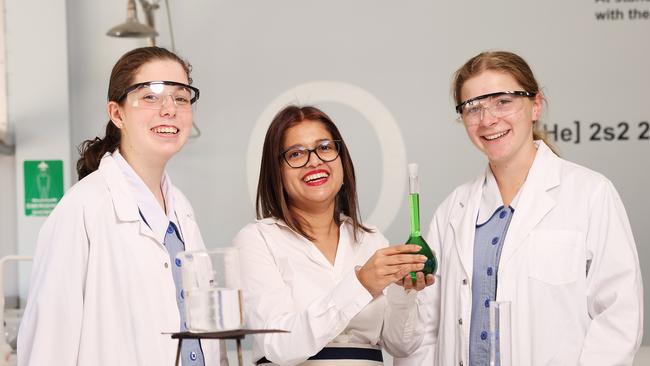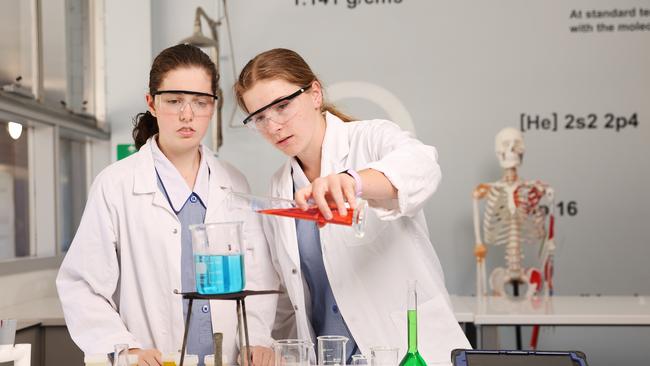PISA 2022: NSW scores points for gender equity in science in international exams
The latest Programme for International Student Assessment has cast Australian education in a dim light, but there’s a glimmer of hope for NSW’s next generation of aspiring female scientists.
Education
Don't miss out on the headlines from Education. Followed categories will be added to My News.
The future of science in NSW may very well be female, with ours the only jurisdiction to see improvements in the subject for both genders in a major international test.
Though the latest Programme for International Student Assessment largely casts Australian education in a dim light, in one area NSW stands out for all the right reasons, having closed the gap between girls and boys in the scientific literacy assessment.
Between 2018 and 2022, the average scores of female students increased in NSW by 12 points, an amount of academic progress equivalent to approximately six months of schooling.
In the same period, the performance of male students increased by 13 points.
At Upper North Shore girls’ school Loreto Normanhurst, head of science Simon Bryant said one of the benefits of single-sex schooling is the girls aren’t biased against studying a “boys’ subject” by the gender make-up of the classroom.

“When I studied science in university, I found myself part of the minority, and as I progressed it was kind of obvious that I was in the minority,” she said.
“I wish that I had more mentors I could look to. Fast forward all these years and part of what I, as a female teacher want to be, is to set an example of what a woman in science can look like.

“Nerdy is cool, in my book – it’s cool to be a girl who loves science, and loves to be curious.”
Passionate young scientists Isobel Haire and Ruby Harrison are pursuing two sciences each for their senior studies next year, and both Year 10 students are eager to take on the harder subjects for their HSC.
“I personally love a challenge in my learning,” biology and chemistry student Ruby said.
“When you love something, it makes it so much easier to be motivated to study for it.”
Isobel, who will study chemistry and physics from next year, said while female scientists aren’t as visible at the highest levels, change will come with the next generation.
“When you look at the research, there’s not as much female representation,” she said.
“It’s so important that schools are fostering the passion for it … and that they have the resources to teach science, because not everyone is lucky enough to have the resources we have.”





